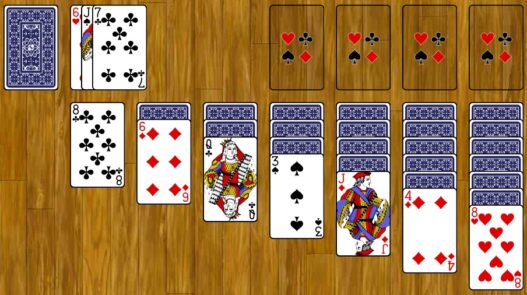Solitaire has long held a special place in the world of gaming, both as a quiet pastime and as a digital activity that connects people across different ages. Despite countless innovations in gaming technology, the solitaire game continues to maintain its appeal. The reason for its endurance goes beyond nostalgia. It is tied to accessibility, the blend of challenge and relaxation it provides, and the universal nature of its rules and design. Each generation, from those who grew up with physical card decks to those discovering the game on smartphones and tablets, finds meaning in its simplicity and depth.
Solitaire as a Bridge Between Eras
A solitaire game is more than a pastime it is a bridge that links past and present. Older generations often remember playing solitaire with traditional card decks, enjoying the tactile experience of shuffling and placing cards. This version required patience, attention, and a certain ritual that became part of its charm. For many, it was a way to pass time quietly while sharpening the mind.
With the rise of computers in the 1990s, solitaire found its way into nearly every home and workplace, especially with its inclusion on personal computers. This shift introduced younger audiences to the game, many of whom had not played it with physical cards. The digital format simplified the setup, sped up the process, and made the game accessible in ways never before possible. Parents and grandparents who had played with cards were suddenly able to connect with younger relatives through a new medium, making solitaire an intergenerational experience.
Today, mobile devices have brought the solitaire game to an even wider audience. A teenager waiting for the bus, a professional taking a short break, or a retiree at home can all enjoy the same game through different platforms. This evolution highlights how solitaire adapts to technology while retaining its core appeal.
Mental and Emotional Benefits Across Ages
Part of the lasting popularity of solitaire comes from the mental and emotional benefits it offers. Every generation faces different challenges, yet the solitaire game provides a common form of support. For students, it can act as a quick mental break that relieves stress while still engaging the brain. For adults balancing work and personal responsibilities, solitaire offers a structured activity that creates a sense of order in the midst of a busy day. For older adults, it helps maintain cognitive sharpness while offering a calming sense of familiarity.
The nature of solitaire encourages focus without overwhelming the player. Unlike fast-paced video games, it allows individuals to play at their own pace, creating a meditative rhythm. This ability to control the tempo is especially important in today’s fast-moving digital culture, where many people seek ways to slow down and engage in mindful activities. The solitaire game’s balance of strategy and luck also keeps players returning, as no two sessions are exactly alike.
Additionally, the sense of achievement that comes from completing a game appeals to all ages. A young player may find satisfaction in winning for the first time, while an older player may enjoy the consistent challenge it provides. This shared experience of accomplishment is part of what makes solitaire universally appealing.
The Solitaire Game in a Modern Social Context
Although solitaire is often seen as a solitary pursuit, its role in the modern social context is also important. Families often bond over teaching each other different variations of the game, passing down knowledge that strengthens generational ties. In workplaces, particularly during the early days of computers, solitaire became a common cultural experience, sparking conversations and creating shared memories.
In the digital era, solitaire has expanded into online communities and competitive formats. Many platforms now offer leaderboards, challenges, and multiplayer options. This modern twist allows players from different generations and backgrounds to connect, sharing their enjoyment of the solitaire game in new ways. These interactions highlight the adaptability of solitaire as it transitions from a purely individual activity to one that also supports social engagement.
Even the perception of solitaire as a wellness tool has grown. Many wellness programs and mental health advocates encourage light, structured games like solitaire for stress management and cognitive health. This has reinforced its value not only as entertainment but also as a tool for personal care, making it especially relevant in a time when digital wellness is a priority.
How Solitaire Maintains Universal Appeal
The universality of solitaire lies in its simplicity. It requires no expensive equipment, no specialized training, and no specific demographic appeal. The rules are straightforward, and once learned, they can be applied across multiple variations. This accessibility ensures that anyone, regardless of age or background, can enjoy the game without barriers.
The solitaire game also provides an adaptable level of challenge. Beginners can enjoy casual play without pressure, while experienced players may pursue faster times or more difficult variations. This flexibility allows it to remain relevant to people with different goals and skill levels, ensuring that it continues to appeal to every generation.
As technology continues to evolve, solitaire is likely to remain a consistent presence. Whether experienced through a traditional deck of cards, on a desktop computer, or through the latest mobile device, it continues to deliver the same blend of relaxation and challenge that has captivated players for centuries. The timeless appeal of solitaire lies not only in the cards but in the shared human experience of finding joy in simple, meaningful play.




